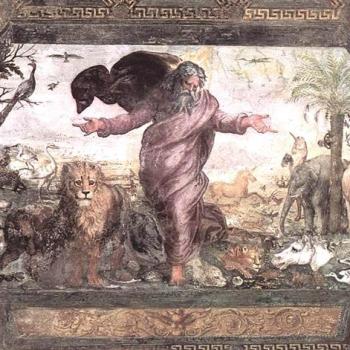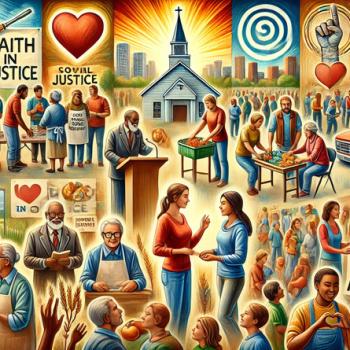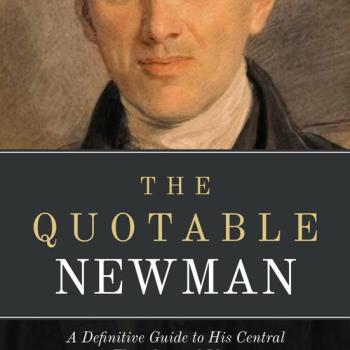Editors' Note: This article is part of the Patheos Public Square on the Pope in America: Implications, Collaborations, Challenges. Read other perspectives here.
My first wish is that everything goes supremely well during your visit to the United States. It is a crucial moment both for our beloved People of God and for the United States. Both are taking crucial turns this year that will have huge impact on the future of the world.
I am sure that you will win the hearts of most people in this country.
Why? Because many people see in you the figure of the humble Christ. An Evangelical minister says you often are the most Christ-like of public statesmen in our time — driving in a compact car, carrying your own bags, foregoing the aristocratic trappings (and pitfalls) of the traditional Roman palace.
You know very well, that we Christians, we Catholics, are an unimpressive people, mired in our own sins and struggling against ourselves our whole lives. "At the heart of Christianity, is the sinner," one of our best writers of the 20th century told us.
Your tone of voice is quite refreshing in its candor. It is quite comforting to the rest of us. Quite humbling.
I also wish very much that the most fundamental idea you have been offering will gain powerful traction: Your vision of the overabundant and steadily constant mercy of the Lord God. He did not create us to destroy us. He created us to offer us his friendship. Of the Lord God, this requires incredible patience. More, he does not just forgive our sins, he expunges them from the record.
Mercy is the most ground-zero theme of the "Good News."
You flashed a stunning humility during your impromptu press conference on the airplane back from Paraguay to Rome. You admitted that ever since your father, an accountant, brought work home on weekends, you have had a grudge against economics and finance. You admitted to a lifetime lack of interest in these subjects. You admitted you have made mistakes in not talking enough about the middle class.
This admission touched the hearts of many of us. Who has not walked into a huge bookstore and felt helpless before all the sections upon sections of books, in so many new fields? Today we are painfully aware of the vast territories of our own ignorance. Even academic specialists cannot keep up with everything being published in their own fields.
I hope you will consider at greater length how it has come to be that 85 percent of the people of the United States today are not poor. Less than a century ago, most of our forebears came here as immigrants who had no money, often did not know English, and had never experienced such bountiful economic opportunity. What has caused this rapid rise from poverty?
Also, I hope you will experience for yourself the great effects the environmental movement has had in this country during the past fifty years. Traveling by air from Cuba and up the eastern seacoast, and from Washington to New York, and back to Philadelphia, you will be surprised by the immense amount of tree cover, more than in George Washington's time, that stretches from city to city. Will you be surprised to learn how much cleaner the rivers are than fifty years ago, and the air?
In the olden days, nature was cruel, heartless, and red in fang and claw toward human beings. For millennia the average rate of infant mortality was as high as 30 percent. In France in 1800 the average age of death among females was 27 and among males was 22. In those days when you promised to marry till death did you part, married life was on average quite short.
Experts say that when we measure the condition of the poor today, we should take into account their greater longevity, the fact that scores of diseases are now easily cured, fairly easy access to pharmaceuticals that reduce or even eliminate infection and pain, and countless other medical advances. The average age of mortality is climbing rapidly almost everywhere.
Do you not find upward mobility a new characteristic slowly taking root on all continents among the world's poor?
Dear Holy Father, you have brought us to the threshold of these questions by introducing the subjects of world poverty, climate change, and human solidarity both with one another and in our harmonies (and disharmonies) with nature. Here you build on the legacies of Pope John Paul II and Pope Benedict XVI in addressing urgent questions facing the world after the fall of Communism.
You have caused us to raise more and more questions. As pope, you have been a breath of fresh air. You have shown the whole world how each pope is unique. Popes do not come from cookie cutters. They mature through much personal and inward pain, suffering, and inner growth.
You are right to teach us to show mercy to one another, and to everyone on this planet.
Ad multos annus!
9/16/2015 4:00:00 AM




